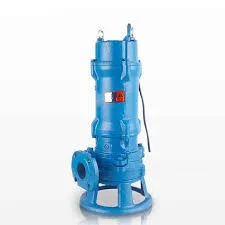TEL:
+86 13120555503
Miao
- Afrikaans
- Albanian
- Amharic
- Arabic
- Armenian
- Azerbaijani
- Basque
- Belarusian
- Bengali
- Bosnian
- Bulgarian
- Catalan
- Cebuano
- Corsican
- Croatian
- Czech
- Danish
- Dutch
- English
- Esperanto
- Estonian
- Finnish
- French
- Frisian
- Galician
- Georgian
- German
- Greek
- Gujarati
- Haitian Creole
- hausa
- hawaiian
- Hebrew
- Hindi
- Miao
- Hungarian
- Icelandic
- igbo
- Indonesian
- irish
- Italian
- Japanese
- Javanese
- Kannada
- kazakh
- Khmer
- Rwandese
- Korean
- Kurdish
- Kyrgyz
- Lao
- Latin
- Latvian
- Lithuanian
- Luxembourgish
- Macedonian
- Malgashi
- Malay
- Malayalam
- Maltese
- Maori
- Marathi
- Mongolian
- Myanmar
- Nepali
- Norwegian
- Norwegian
- Occitan
- Pashto
- Persian
- Polish
- Portuguese
- Punjabi
- Romanian
- Russian
- Samoan
- Scottish Gaelic
- Serbian
- Sesotho
- Shona
- Sindhi
- Sinhala
- Slovak
- Slovenian
- Somali
- Spanish
- Sundanese
- Swahili
- Swedish
- Tagalog
- Tajik
- Tamil
- Tatar
- Telugu
- Thai
- Turkish
- Turkmen
- Ukrainian
- Urdu
- Uighur
- Uzbek
- Vietnamese
- Welsh
- Bantu
- Yiddish
- Yoruba
- Zulu
Telephone: +86 13120555503
Email: frank@cypump.com
Feb . 16, 2025 13:03 Back to list
pump for septic
The role of a septic pump often flies under the radar until a system failure draws attention to its critical function. A pivotal element of an efficient septic system, the right pump ensures longevity and optimal performance for your wastewater management needs. To harness the full benefits of a septic pump, understanding its features, advantages, and maintenance requirements is crucial.
Authoritative sources in the septic industry, including environmental health agencies and sanitation experts, convene on the importance of pump quality and maintenance. They underscore that an inadequately maintained septic pump can lead to pressing issues such as contaminated groundwater, malodor, and even environmental violations. Potential buyers can rely on EPA guidelines and standards set by the National Onsite Wastewater Recycling Association, which outline best practices for septic system efficiency. Building trust with a reputable manufacturer or supplier also adds a layer of security when investing in a septic pump. Established brands often offer warranties and customer support services that mitigate concerns regarding defects or failures. Reading customer reviews can offer insights into the practical reliability of different models, making it easier to discern patterns of satisfaction or dissatisfaction. Finally, as environmental consciousness grows, a focus on energy efficiency in septic pumps gains prominence. Contemporary models incorporate energy-saving technologies and environmentally friendly features, ensuring households not only reduce their ecological footprint but also benefit from lower utility bills. Opting for an energy-efficient septic pump not only aligns with sustainable practices but also reflects a forward-thinking approach to household wastewater management. In augmentation, the coupling of technological advancement with the seasoned wisdom of septic professionals ensures that homeowners can maintain robust and efficient septic systems for years to come. By emphasizing durable materials, considering household needs, and committing to routine maintenance, optimal septic pump performance can be sustainably achieved.


Authoritative sources in the septic industry, including environmental health agencies and sanitation experts, convene on the importance of pump quality and maintenance. They underscore that an inadequately maintained septic pump can lead to pressing issues such as contaminated groundwater, malodor, and even environmental violations. Potential buyers can rely on EPA guidelines and standards set by the National Onsite Wastewater Recycling Association, which outline best practices for septic system efficiency. Building trust with a reputable manufacturer or supplier also adds a layer of security when investing in a septic pump. Established brands often offer warranties and customer support services that mitigate concerns regarding defects or failures. Reading customer reviews can offer insights into the practical reliability of different models, making it easier to discern patterns of satisfaction or dissatisfaction. Finally, as environmental consciousness grows, a focus on energy efficiency in septic pumps gains prominence. Contemporary models incorporate energy-saving technologies and environmentally friendly features, ensuring households not only reduce their ecological footprint but also benefit from lower utility bills. Opting for an energy-efficient septic pump not only aligns with sustainable practices but also reflects a forward-thinking approach to household wastewater management. In augmentation, the coupling of technological advancement with the seasoned wisdom of septic professionals ensures that homeowners can maintain robust and efficient septic systems for years to come. By emphasizing durable materials, considering household needs, and committing to routine maintenance, optimal septic pump performance can be sustainably achieved.
Share
Next:
Latest news
-
ISG Series Vertical Pipeline Pump: Advanced Solutions for Industrial Fluid Handling|Chi Yuan Pumps Co., LTD
NewsAug.06,2025
-
ISG Series Vertical Pipeline Pump - Chi Yuan Pumps Co., LTD.|High Efficiency&Energy Saving
NewsAug.06,2025
-
ISG Series Vertical Pipeline Pump - Industrial Fluid Handling | Chi Yuan Pumps
NewsAug.05,2025
-
ISG Series Vertical Pipeline Pump - Chi Yuan Pumps Co., Ltd.|Compact Design&Energy Efficiency
NewsAug.05,2025
-
ISG Series Pipe Pump - Chi Yuan Pumps | High Efficiency, Low Noise
NewsAug.05,2025
-
AI-Optimized Pipeline Pumps | Boost Efficiency
NewsAug.05,2025










